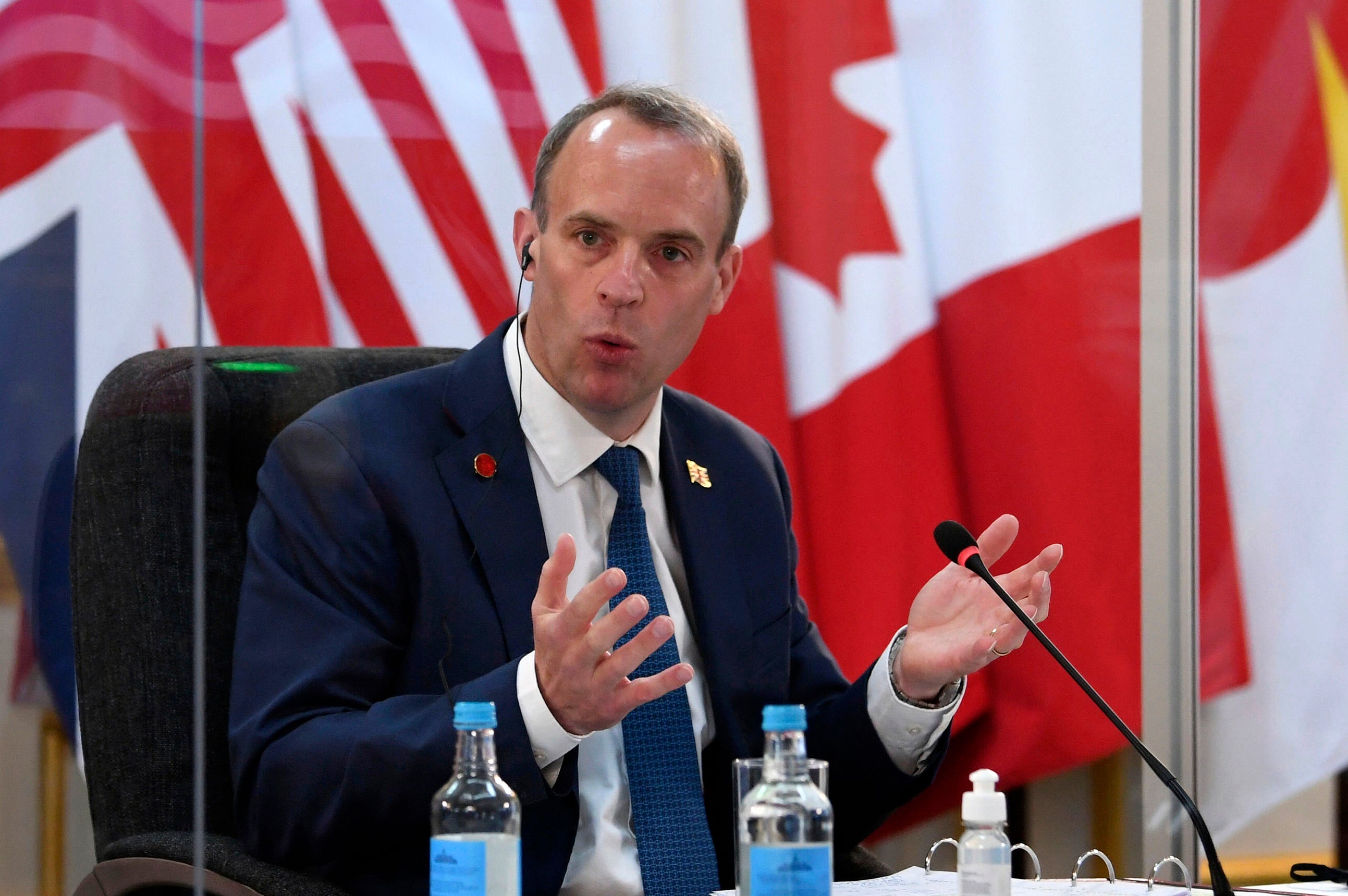UK foreign minister heads to Asia for Afghanistan talks
U.K. Foreign Secretary Dominic Raab says he is heading to the region around Afghanistan in a push to rescue stranded British citizens and Afghan allies

Your support helps us to tell the story
From reproductive rights to climate change to Big Tech, The Independent is on the ground when the story is developing. Whether it's investigating the financials of Elon Musk's pro-Trump PAC or producing our latest documentary, 'The A Word', which shines a light on the American women fighting for reproductive rights, we know how important it is to parse out the facts from the messaging.
At such a critical moment in US history, we need reporters on the ground. Your donation allows us to keep sending journalists to speak to both sides of the story.
The Independent is trusted by Americans across the entire political spectrum. And unlike many other quality news outlets, we choose not to lock Americans out of our reporting and analysis with paywalls. We believe quality journalism should be available to everyone, paid for by those who can afford it.
Your support makes all the difference.U.K. Foreign Secretary Dominic Raab was heading to the region around Afghanistan on Wednesday in a push to rescue stranded British citizens and Afghan allies, amid strong criticism of the government’s rushed and chaotic evacuation effort.
Raab did not provide any details, citing security reasons, but he is expected to visit Pakistan for talks on establishing routes out of Afghanistan through third countries.
A senior British official, Simon Gass, already travelled to Qatar to meet with Taliban representatives for talks about allowing people to leave Afghanistan.
Britain says it evacuated more than 15,000 U.K. citizens and vulnerable Afghans from Kabul during a two-week August airlift that Defense Secretary Ben Wallace has called “Dunkirk by WhatsApp.”
But Wallace also said that as many as 1,100 Afghans who were entitled to come to the U.K. were left behind. Raab said those who weren’t evacuated included guards from the now-abandoned British Embassy in Kabul.
“We wanted to get some of those embassy guards through, but the buses arranged to collect them, to take them to the airport, were not given permission to enter,” he told lawmakers on Parliament’s Foreign Affairs Committee.
Raab put the number of U.K. nationals still in Afghanistan in the “low- to mid-hundreds.”
The United States and other nations were caught off-guard by the Taliban’s swift conquest of Afghanistan, having failed to predict how quickly the Western-backed Afghan government would collapse once NATO troops began to depart.
Opposition politicians excoriated Raab for failing to cut short a vacation in Greece as the Taliban advanced on Kabul. He returned to London only after the Afghan capital fell on Aug. 15.
Raab said the intelligence had suggested the most likely scenario after Western troops withdrew was a “steady deterioration” and “it was unlikely Kabul would fall this year.”
“That's something that was widely shared, that view, among NATO allies,” Raab said.
He rejected a claim by Conservative lawmaker Tom Tugendhat that the Afghan collapse was “the single biggest foreign policy disaster the U.K. has faced since Suez.” A failed 1956 attempt by Israel, Britain and France to seize the newly nationalized Suez Canal from Egypt is often seen as a symbol of post-imperial Britain’s declining power.
“I am afraid I struggle with the Suez analogy,” Raab said. “But I understand what you are really searching for is to learn the lessons and even more generally find a path forward for Afghanistan.”